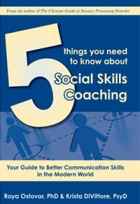Everything You Need To Know About Child & Teen Mental Health
1 in 5 teens and young adults live with a mental health condition. How do we know when behavior requires a professional opinion?
January 8, 2024
Child and adolescent mental health has finally started to get the attention it deserves. Behavior that was once seen as kids being kids—like teens being rebellious or children misbehaving at home or school—may be due to the onset of mental health conditions in young people.
Over half of all cases of mental illness begin by the age of 14.
According to the National Alliance on Mental Illness, one in five kids and teens live with a mental health condition, such as depression, anxiety, or an eating disorder. The earlier these conditions are acknowledged, the greater the impact providers, parents, and peers can have.
Keep Reading To Learn
- The signs of positive and negative mental health in children and adolescents
- How to identify symptoms of common mental health disorders in kids and teens
- Ways that conditions are diagnosed and treated in young people
Understanding the Full Picture of Mental Health in Children and Teens
When children and teenagers are mentally healthy, they function well at home and school, and in society. However, when health care professionals, parents, and teachers discuss mental health in children, they are often talking about those experiencing mental health disorders.
It’s important to identify the characteristics of a mentally healthy child or adolescent. By understanding what a mentally healthy child looks like, we can learn to identify symptoms of disorders and recognize health care problems that need to be addressed.
Learning
Children and teenagers who are mentally healthy are strong learners. This includes learning in the classroom, but also learning how to function socially.
Children who feel well-adjusted with regards to schoolwork, extracurricular activities, and chores at home are likely to experience healthy development as they grow up. Furthermore, teens who have jobs should be able to function appropriately at work as well.
Expressing Emotions
Kids and teens who are mentally healthy should also be able to feel, manage, and express a wide range of both positive and negative emotions. It should be relatively easy to tell when mentally healthy children are happy or sad.
Furthermore, children and teenagers who are mentally healthy should be able to talk about these topics. While it is normal for children and teens to have some degree of privacy, they should also be able to open up.
Relationships
Young people should be able to form and maintain positive relationships with others. This includes not only their peers, but also their siblings, parents, and teachers. If there are pets in the home, then they should have positive relationships with non-human members of the family as well.
Coping Mechanisms
Children and adolescents should be able to cope with and manage fluctuating circumstances. Even though it is normal for kids and teens to express some degree of uncertainty when it comes to changes in their schedules or routines, they should be able to adapt with the help of others. When children and teenagers have strong coping mechanisms, this is an indicator of good mental health.
In Her Own Words
Mary was struggling with anxiety and other mental health challenges, but treatment at McLean—and the support of her sister—turned her life around.
Defining Common Mental Health Disorders
Now that we understand what some signs of positive mental health are, it is time to take a closer look at some of the common mental health disorders affecting children and teenagers.
Anxiety Disorders
Anxiety disorders can impact children at any age and at any time. Overall, anxiety disorders involve persistent and excessive fears, worries, or concerns. Some of the most common types of anxiety disorders include generalized anxiety disorder, social anxiety disorder, and phobias.
Attention Deficit/Hyperactivity Disorder (ADHD)
Children with ADHD often have trouble with both attention and hyperactivity, as the name of the disorder indicates. Some children have more difficulty with attention while other children have a harder time with hyperactivity. Most of the children with ADHD have symptoms that fall in both categories.
Children commonly develop this disorder around the age of six—most diagnoses are made between the ages of six and twelve. Furthermore, symptoms of this disorder must be present in multiple settings, such as school, sports, extracurriculars, and home.
Autism Spectrum Disorder (ASD)
Autism spectrum disorder presents with a wide range of severity—not every person with ASD experiences the condition the same way. Some children with autism might have mild symptoms that only impact them in certain social situations. On the other hand, children with autism might also have a disorder that is so severe that they can never live independently. For this reason, early diagnosis and treatment of autism is incredibly important.
Eating Disorders
Eating disorders often present in teen years and are more common in girls than boys. Eating disorders are often underdiagnosed or overlooked in males, which may contribute to an imbalance in diagnosis rates.
Some of the most common eating disorders include bulimia, anorexia nervosa, and binge eating disorder. Adolescents may become fixated on attaining an unrealistic body type, trying to control part of their life when other things are in flux, or use eating habits as a coping mechanism for another mental health condition.
Mood Disorders
Mood disorders are common in children and adolescents, including depression and bipolar disorder.
When a child has depression, they usually have feelings of persistent sadness, a loss of interest in activities that used to bring them joy, and an inability to function well at school or interact with their peers.
Another common type of mood disorder is bipolar disorder. Bipolar disorder may present as shifts between moods, including mania (periods of euphoria) and depression (periods of sadness).
Personality Disorders
Borderline personality disorder (BPD) is often marked by intense emotional instability. People with BPD are often “on edge,” have confusion over their sense of self, are impulsive, or have intense fear of abandonment.
Signs and Symptoms of Mental Health Disorders in Young People
When talking about common signs and symptoms that might indicate mental health issues in children, it is helpful to know that a child or teen might present with only one or two of these symptoms—others might present with many of them. Caregivers need to remain vigilant when they see behaviors that may be concerning.
Depression
Depression in children can present in many ways. Common signs and symptoms of depression may include:
- Trouble with sleep, either sleeping too much or not at all
- A loss of interest in activities that used to bring pleasure and joy
- Excessive feelings of guilt regarding situations that are not the fault of the child
- A generalized loss of energy
- Trouble concentrating, either at home or at school
- Changes in appetite, either eating too much or not at all
- Feelings of agitation regarding situations that should not bring any sense of anxiety
Anxiety
Anxiety in children can present in multiple ways depending on the exact anxiety disorder.
One of the most serious issues regarding anxiety is panic attacks. If you can identify a panic attack quickly, it can be de-escalated quickly and cause less distress for the child. Some of the most common symptoms of panic attacks include:
- A sharp, stabbing pain that is usually present in the middle of the chest
- An attack that arises suddenly in situations of extreme stress
- A heart rate that rises rapidly
- Feelings of shortness of breath or a feeling that someone cannot catch their breath
- Excessive sweating and shaking
- Feelings of tingling in the hands
Bipolar Disorder
While bipolar disorder is not as common as some of the other disorders on this list, it can be incredibly intense for both children and the adults. Children with bipolar disorder experience fluctuations in their mood, alternating between periods of mania and periods of depression.
Some of the most common symptoms of mania include:
- Extremely high levels of energy
- A perceived lack of need for sleep
- Speaking loudly and quickly
- Grandiose ideas and delusions
- Engaging in incredibly risky behaviors, such as unprotected sex or spending a tremendous amount of money
Eating Disorders
There are numerous eating disorders that children might develop.
Some of the most common signs of anorexia include rapid weight loss, eating small meals, a refusal to eat at certain times, unhealthy levels of exercise, and hair loss.
Some children may intentionally throw up or take laxatives to avoid calories, often being diagnosed with bulimia. Some additional signs of bulimia include damaged fingernails and poor dental hygiene.
Binge eating disorder is another common eating disorder that may result in weight gain from excessive overeating. Children may eat even when they’re full, not hungry, or even uncomfortably full. They may also eat a large amount of food over a small period, like a couple of hours. Unlike bulimia, binge eating doesn’t try to offset the number of calories taken in through vomiting, excess exercise, or taking laxatives.
Eating disorders need to be treated quickly because they can lead to physical health issues such as heart problems and other types of organ damage.
Many kids with eating disorders may deny that they are trying to lose weight. Without additional information—such as weight gain or loss tracked over doctor’s appointments—it can be hard to make a diagnosis. Annual check-ups with a pediatrician can provide a full picture of weight changes and can help assess if an eating disorder is present.
What To Do If a Child Needs Help
If you’re concerned that someone you know or care for needs help, don’t delay in reaching out to a licensed health care provider. Too often, people wait too long to get help. Intervening early can lead to better health outcomes for children and their families.
A primary care provider, such as a pediatrician, is a great starting point for seeking mental health help, as they may be able to help with testing, evaluation, or treatment. They’ll be able to ask questions about behaviors, provide resources to help, and make referrals to specialized providers, if needed.
If you’re concerned about behaviors occurring outside of the home, talking to teachers, school counselors, or coaches is another option. They’ll be able to share anything they’ve noticed that may be cause for concern.
If there is an emergency, you should immediately call 911 or go to the nearest emergency room.
If a child or teen is showing signs of self-harm or suicidal behaviors, you can also call 988 or 1.800.273.TALK (8255) to reach a 24-hour crisis center or text MHA to 741741 to receive guidance on what to do.
Students, Suicide, and What Parents Can Do
Most high school and college students struggle while trying to succeed in the classroom, fit in with their peers, and cope with all the highs and lows of growing up.
Those stressors often lead to depression and anxiety. Unfortunately, those same stressors can lead to thoughts of suicide.
Some parents are unaware of the signs that their kids are struggling. Other parents may also be in denial, refusing to believe their children are experiencing anything other than the normal ups and downs of young adulthood.
Know the Signs and What To Do
Parents need to be aware of the stressors that may put their children at risk.
For example, young adults with previously diagnosed mental health conditions are more likely to consider suicidal thoughts or behaviors. Children with a history of trauma, those who have had a family member attempt or die by suicide, LGBTQ kids, and members of minority groups are also more vulnerable.
In interacting with their kids, parents need to become more engaged and aware. Listen more than talk—and take your child’s words seriously.
A young adult who says they feel trapped or “can’t go on this way” may mean exactly what they say. Do not ignore these words. Instead, express your concern and emphasize your willingness to help. Tell your child that, together, you can address these problems and move forward.
Also, if you find out your child is looking for information on how to take their own life or seeking to obtain a gun, take steps to ensure safety. Hide or remove any weapons you might have and lock up dangerous medications. If you find yourself in this situation, please contact a mental health professional immediately.
If your child appears increasingly anxious, depressed, or hopeless, don’t wait to seek help. Early awareness and treatment is crucial for the mental well-being of kids and teens.
The Reality Behind Teens and Suicide
Suicide is the second-leading cause of death for individuals between the ages of 15 and 24, with young adults having the highest occurrence of serious suicidal thoughts and suicide attempts amongst all age groups.
A 2019 CDC report found high rates of suicide and suicidal ideation among high-schoolers, with nearly 9% of all students claiming they have attempted suicide.
“Clinically, we have seen an increase in young adults presenting with first-time suicidal attempts, depression with suicidal ideations, increased anxiety, and increase in substance use,” according to Omotola T’Sarumi, MD, a psychiatrist at McLean.
Unfortunately, the pressures of being a young adult do not go away during the college years. A 2018 study by Harvard Medical School researchers found high rates of mental illness and thoughts of suicide among the more than 67,000 students attending more than 100 colleges.
More than 20% of respondents said that they had experienced situations that increased their stress levels, leading to a range of mental health issues, including suicide attempts and self-harm.
Suicide: Know the Signs and What To Do
We can all play a part in preventing suicide and making sure those who need help, get help.

Mental Health Conditions Are More Common Than You Realize
To help break some stigma regarding mental health, it’s helpful to look at some of the statistics surrounding them. Once parents, teachers, and children realize how common mental illnesses are, it is easier for everyone to be candid about issues that may be impacting them in their lives—and if someone is experiencing symptoms, they can get the help they deserve.
Some important statistics from the CDC include:
- Behavioral problems in children most commonly present between the ages of 6 and 11
- Close to 80% of children are going to receive treatment for a mental health issue at some point in their life
- Close to 10% of children will be diagnosed with ADHD
- Just over 7% of children will be diagnosed with an anxiety disorder of some type
- Just over 3% of children will be diagnosed with depression
- Most children who are diagnosed with depression will also be diagnosed with anxiety
- The prevalence of anxiety and depression in children have both increased over time
- Depression and anxiety both get more common as children get older
What Causes Mental Health Conditions in Children?
There is no singular cause of any single mental health condition in children, so it is helpful to learn about some common risk factors that might make it more likely for a child to develop a mental health condition. By understanding risk factors, it is easier to identify children and teenagers who might be at risk.
Common risk factors include:
- Kids with a family history of depression, such as parents who struggle with mental health disorders
- Kids who have low self-esteem or have negative self-image
- Kids with a history of child abuse
- Children with poor social skills or communication problems
- Children who have experimented with drugs and tobacco products
- Kids with a history of a traumatic brain injury (TBI)
- Children who undergo puberty at an earlier age
- Kids from a single-parent family or who have been through a parental divorce
- Children who live in a household where parents use drugs or tobacco products
Mindfulness for Kids and Teens
Dr. Gillian Galen lays the foundation for mindfulness for kids, shares tips to get kids and teens involved in mindful practices, and answers audience questions about mindfulness.

Diagnosing Mental Health Conditions in Children
Health care professionals make a diagnosis based on the symptoms of the patient, diagnostic criteria or screening tests, and patient and family history.
For example, ADHD may be diagnosed using a Vanderbilt screening test. This is a form that is filled out by parents and teachers before being scored by a pediatrician or other licensed health care professional. In some cases, a trained child psychiatrist might also use the Vanderbilt form.
When it comes to eating disorders, though, there are lab tests and objective measurements that can be helpful. For example, rapid weight loss is a common symptom. A doctor may run labs to examine the patient’s electrolyte and nutrient levels to make sure there is nothing that needs to be urgently addressed.
Childhood Mental Disorders Can Be Treated—Don’t Lose Hope
There are plenty of treatment options available for children diagnosed with a mental health disorder. Depending on the condition, a combination of treatments, whether through medication or behavioral therapies, may be most effective. It’s important to remember that every condition affects each person differently, so treatment of mental health conditions can be as unique as each person with a diagnosis.
Many mental health disorders require lifelong management. The sooner the conditions are addressed, the faster they can be treated.
The treatment of mental health conditions in children will vary depending on the exact type of condition that has been diagnosed. Each treatment plan is tailored to meet the individual needs of the patient.
It’s important that kids and caregivers work closely with their medical care teams to make sure they have a comprehensive treatment plan in place that will address unique needs, as well as if treatment needs to be tweaked.
Let us help your child feel like a kid again. Call us today at 617.855.2820 to learn more about McLean’s treatment options for kids and teens.
Want More Info?
Looking for even more information about child and adolescent mental health? You may find these resources helpful.
Interesting Articles and Videos and More
Learn more about youth mental health and what you can do if your child is displaying signs of a mental illness
- Video: Recognizing and Addressing Mental Health Disorders in Teens
- Everything You Need To Know About OCD in Kids and Teens
- Everything You Need To Know About ADHD
- Everything You Need To Know About Stress
- What Is Teen Cutting and Self-Injury?
- Video: Building Confidence in Children and Teens
- Video: Redefining Self-Care in Kids & Teens
- Understanding Child Abuse and Its Effects on Mental Health
- Video: Promoting Positive Mental Health in K-12 Students
- 3East: McLean’s Unique Approach to Adolescent Dialectical Behavior Therapy
- Understanding LGBTQ+ Mental Health
- Anxiety and OCD in Kids and Teens: A Course for Parents, Educators, and Professionals
- Find all of McLean’s resources on child and adolescent mental health
Helpful Links
These organizations may also have useful information:
General Mental Health
Adolescent Wellness, Inc.
A nonprofit organization that simplifies and promotes prevention and referral resources with the goal of every youth growing into maturity without developing symptoms of anxiety or depression.
American Academy of Child and Adolescent Psychiatry
This organization works to promote the healthy development of children, adolescents, and families through advocacy, education, and research, and provides professional support and resources to child and adolescent psychiatrists throughout their careers.
Franciscan Children’s
As the only pediatric post-acute provider in New England, Franciscan Children’s works with children and adolescents with complex medical, mental health, and educational needs. They provide compassionate, personalized, and family-focused care and education with the aim to help children reach their full potential.
National Federation of Families for Children’s Mental Health
A national, family-run organization that focuses on the issues of children and youth with emotional, behavioral, and mental health needs, including substance use challenges, and their families. They work to transform mental and substance use health care in America and help children grow up healthy and able to maximize their potential.
Parent/Professional Advocacy League
A statewide, grassroots family organization in Massachusetts dedicated to improving the mental health and well-being of children, teens, and families through education, outreach, support, advocacy, and partnership. They aim to support families, nurture parent leaders, work for systems change, and improve access to mental health services for children and families.
The Balanced Mind Parent Network
A program of the Depression and Bipolar Support Alliance, this family-focused community for families of children with mood disorders aims to help families raising children with mood disorders find the answers and support that they need.
ADD/ADHD
Children and Adults With Attention Deficit/ Hyperactivity Disorder
CHADD is a leading nonprofit organization for children and adults with ADHD. They aim to improve the lives of people affected by ADHD.
Autism Spectrum
Asperger/Autism Network
A nonprofit organization that provides information, education, community, support, and advocacy to individuals affected by autism spectrum disorders and other neurological differences, including support for families and professionals.
Autism Science Foundation
A nonprofit organization that supports cutting-edge autism spectrum disorder research through funding and other assistance. They provide information and increase awareness about autism spectrum disorder, and provide support to the individuals and families affected by the disorder.
Autism Speaks
Autism Speaks is dedicated to addressing the needs of individuals with autism spectrum disorder and related conditions and their families through advocacy, education, research, and support.
Suicide Prevention
If you or someone you know needs help:
- Call 1.800.273.8255 or 988 for the 988 Suicide & Crisis Lifeline
- Text HELLO to 741-741 for free, 24-hour support from the Crisis Text Line
- Outside of the U.S., visit the International Association for Suicide Prevention for a database of resources
- Contact your mental health professional
- McLean offers a collection of suicide prevention resources
- Call us at McLean at 617.855.3141 for information on admission
Find more information on suicide prevention resources.
Books About Child and Adolescent Mental Health

Find Your Fierce
by Jacqueline Sperling, PhD
(Magination Press/American Psychological Association, 2021)

Stuff That’s Loud: A Teen’s Guide to Unspiraling When OCD Gets Noisy
by Ben Sedley and Lisa W. Coyne
(New Harbinger, 2020)

Acceptance and Commitment Therapy: The Clinician’s Guide for Supporting Parents
by Koa Whittingham and Lisa W. Coyne
(Elsevier, 2019)

Fighting Back: What an Olympic Champion’s Story Can Teach Us About Recognizing and Preventing Child Sexual Abuse—and Helping Kids Recover
Kayla Harrison, Cynthia S. Kaplan, and Blaise Aguirre
(Guilford Press, 2018)

5 Things You Need to Know About Social Skills Coaching: Your Guide to Better Communication Skills in the Modern World
by Roya Ostovar, PhD, and Krista DiVittore, PsyD
(Future Horizons, Inc., 2017)

The Autism Inventory of Development (AID): An Assessment Tool for Parents and Professionals
by Roya Ostovar, PhD
(Future Horizons, Inc., 2017)

Parenting Your Child With Autism: Practical Solutions, Strategies, and Advice for Helping Your Family
by Anjali Sastry and Blaise Aguirre, MD
(New Harbinger, 2012)

The Ultimate Guide to Sensory Processing Disorder
by Roya Ostovar, PhD
(Sensory World, 2010)

The Joy of Parenting: An Acceptance and Commitment Therapy Guide to Effective Parenting in the Early Years
by Lisa Coyne, Amy R. Murrell
(New Harbinger Publications, 2009)

Helping Teens Who Cut: Understanding and Ending Self-Injury
by Michael Hollander, PhD
(Guilford Press, 2008)

Helping Your Troubled Teen: Learn to Recognize, Understand, and Address the Destructive Behavior of Today’s Teens and Preteens
by Cynthia Kaplan, PhD, Blaise Aguirre, MD, and Michael Rater, MD
(Fair Winds Press, 2007)






